
Audi A6

Model Overview
The Audi A6 is a mid-size luxury sedan that showcases this German brand's attention to detail. Its tech-intensive cabin delivers upscale comfort beyond expectations in this class, and its exterior looks expensive without being showy. For its 2019 redesign, the Audi A6 gained a new mild-hybrid engine that delivers big torque but also reduces fuel consumption. Of course, Quattro AWD is standard.
Photos




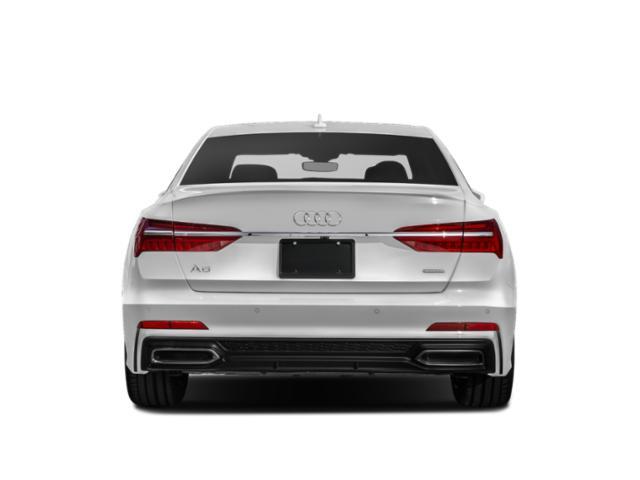
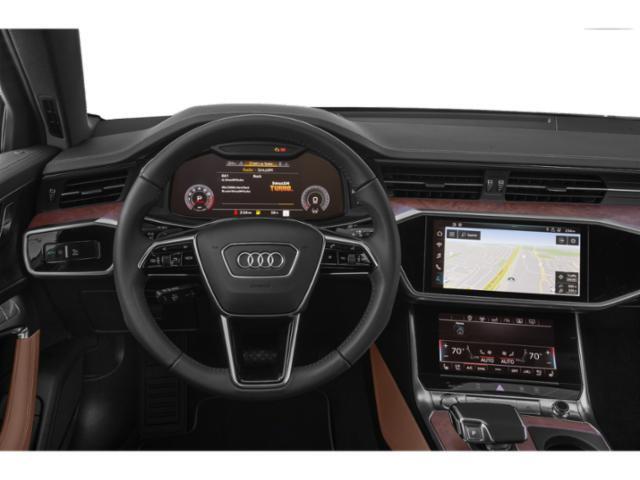


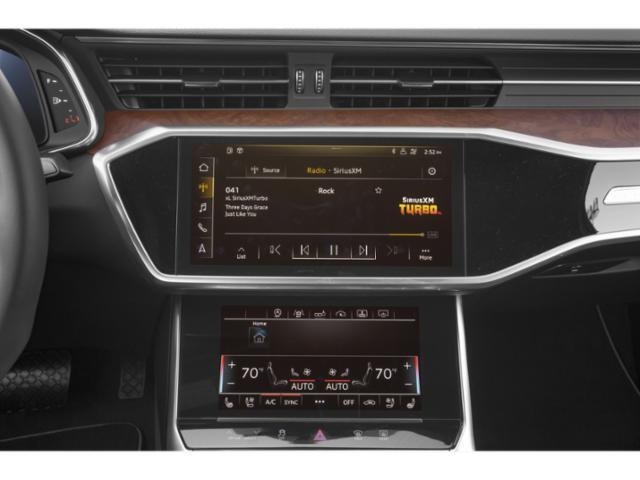
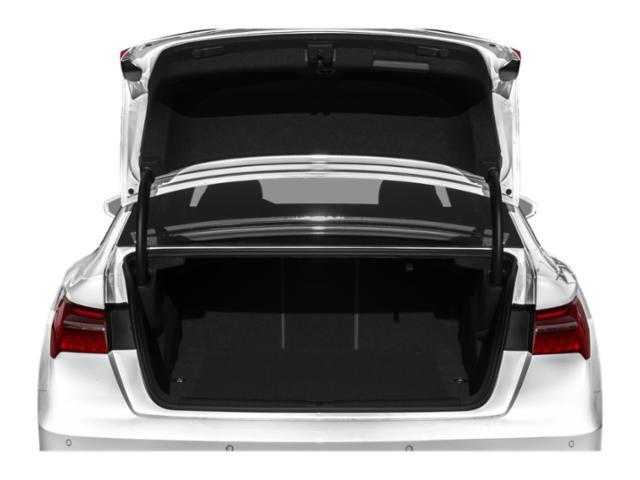

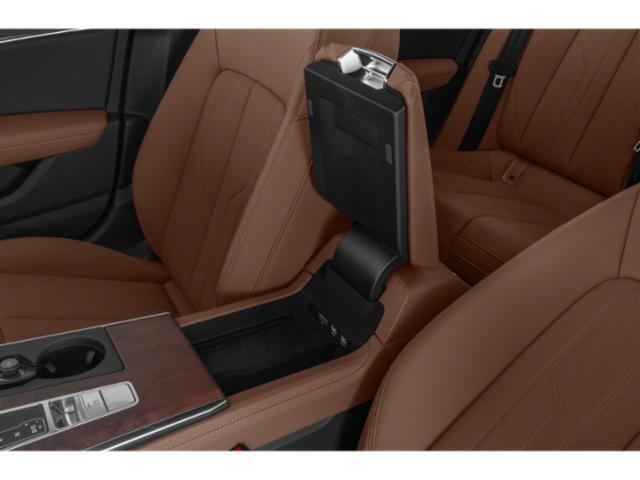

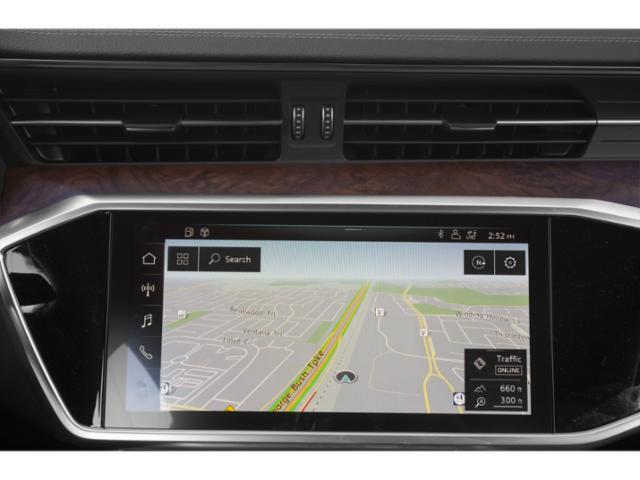














Reviews and News
Owner Scores
Comfort
N/A
Performance
N/A
Fuel Economy
N/A
Interior Design
N/A
Exterior Styling
N/A
Reliability
N/A
Owner Reviews
traderpro1998
wonderful ride
December 14, 2017
Overall Score
never felt more confortable with another car . it's a very good car that give u trust in your drive . this car can make u feel free and not stressed . i like this car because the're space and the gaz is not so expensive with it .
Comfort
10
Performance
10
Fuel Economy
10
Interior Design
10
Exterior Styling
10
Reliability
8
Recall Information
* Data provided by Transport Canada
Recall number
Recall date
System affected
Model year(s) affected
Recall number
2022-660
Recall date
2022-11-21
System affected
Electrical
Model year(s) affected
2019 2020 2021 2022
Manufacturer Recall Number:
90V2
Units Affected:
3,759
Notification Type:
Safety Mfr
Issue:
On certain vehicles, if you spill liquid on the rear seat, the gateway control module could be damaged. If this happens, the vehicle may enter emergency mode and suddenly lose power to the wheels.
Note: The power steering and braking systems will continue to work. You may also see warning messages on the instrument panel when this happens.
Safety Risk:
A sudden loss of power to the wheels may increase the risk of a crash.
Corrective Actions:
Audi will notify owners by mail and instruct you to take your vehicle to a dealer to install a protective cover on the gateway control module.
Recall number
2022-114
Recall date
2022-03-14
System affected
Fuel Supply
Model year(s) affected
2019 2020 2021
Manufacturer Recall Number:
20DN
Units Affected:
3,216
Notification Type:
Safety Mfr
Issue:
On certain vehicles, the fuel level sender may get stuck. If this happens, the fuel gauge can show a higher fuel level than what is actually in the fuel tank. This could cause a driver to believe there is fuel when the tank is empty. As a result, the vehicle could run out of fuel and stall.
Safety Risk:
A sudden loss of engine power could increase the risk of a crash.
Corrective Actions:
Audi will notify owners by mail and instruct you to take your vehicle to a dealer to replace the fuel level sensor.
Recall number
2021-132
Recall date
2021-03-10
System affected
Airbag
Model year(s) affected
2019 2020 2021
Manufacturer Recall Number:
70i2
Units Affected:
315
Notification Type:
Safety Mfr
Issue:
On certain vehicles, a problem with the instrument panel cover may cause the passenger-front airbag not to inflate properly in a crash. This could also cause plastic pieces to be propelled toward vehicle occupants when the airbag inflates.
Safety Risk:
The passenger-front airbag may not open and inflate properly in a crash, and plastic pieces could be propelled towards the vehicle occupants. This could create an increased risk of injury in a crash.
Corrective Actions:
Audi will notify owners by mail and instruct you to take your vehicle to a dealer to inspect the passenger-front airbag score line in the instrument panel and repair it, if necessary.
Recall number
2020-208
Recall date
2020-05-13
System affected
Airbag
Model year(s) affected
2020
Manufacturer Recall Number:
70H6
Units Affected:
20
Notification Type:
Safety Mfr
Issue:
On certain vehicles, the leather-covered instrument panel may not have the correct split lines for the passenger airbag. As a result, the passenger airbag may not inflate properly in a crash. It could also cause small plastic parts to be projected inside the vehicle.
Safety Risk:
An airbag that does not work properly could create an increased risk of injury in a crash.
Corrective Actions:
The company will notify owners by mail and instruct you to take your car to a dealer to replace the instrument panel.
Recall number
2020-104
Recall date
2020-03-18
System affected
Electrical
Model year(s) affected
2019 2020
Manufacturer Recall Number:
27H2
Units Affected:
22
Notification Type:
Safety Mfr
Issue:
On certain vehicles built with a 2.0 TFSI engine, moisture can enter the starter generator and cause a short circuit.
Safety Risk:
A short circuit could create a fire risk.
Corrective Actions:
The company will notify owners by mail and instruct you to take your vehicle to a dealer to replace the starter generator.
Recall number
2019-235
Recall date
2019-05-17
System affected
Brakes
Model year(s) affected
2019
Manufacturer Recall Number:
47O8
Units Affected:
137
Notification Type:
Inconsequential
Issue:
Certain vehicles were built with a European-specification brake fluid reservoir cap instead of the correct North American cap. Canadian regulations require specific information to be provided on the brake fluid cap.
Safety Risk:
This small error is unlikely to affect safety.
Corrective Actions:
This is not a recall. The company will install the correct brake fluid reservoir cap on all new (unsold) vehicles.
Recall number
2019-185
Recall date
2019-04-15
System affected
Lights And Instruments
Model year(s) affected
2019
Manufacturer Recall Number:
90M7
Units Affected:
16
Notification Type:
Compliance Mfr
Issue:
On certain vehicles, the brake warning messages in the instrument panel will display the words "ABS" and "BRAKE". Canadian regulations require that images are used in place of words.
Safety Risk:
These errors could lead to confusion about the status of the brake system.
Corrective Actions:
The company will notify owners by mail and instruct you to take your vehicle to a dealer to update the instrument panel software.
Recall number
2019-024
Recall date
2019-01-17
System affected
Fuel Supply
Model year(s) affected
2016 2017
Manufacturer Recall Number:
24DP
Units Affected:
8,631
Notification Type:
Safety Mfr
Issue:
On certain vehicles, a small amount of fuel may leak from one or both fuel rails.
Safety Risk:
Leaking fuel in the presence of an ignition source could increase the risk of a fire.
Corrective Actions:
The company will notify owners by mail. Owners will be instructed to take their vehicle to a dealer to have the left and right fuel rails replaced.
Recall number
2018-680
Recall date
2018-12-05
System affected
Electrical
Model year(s) affected
2015
Manufacturer Recall Number:
Units Affected:
74
Notification Type:
Safety Mfr
On certain vehicles, the auxiliary heater connector may not have been properly inserted into the auxiliary heater. This could lead to increased resistance in the auxiliary heater circuit, increasing the risk of fire, causing injury and/or damage to property. Correction: Dealers will inspect and replace the auxiliary heater and connector if necessary.
Recall number
2018-365
Recall date
2018-07-06
System affected
Airbag
Model year(s) affected
2016 2017 2018
Manufacturer Recall Number:
74D5
Units Affected:
2,672
Notification Type:
Recalls Audit
On certain vehicles, a problem with the passenger occupant detection system can cause illumination of the airbag warning light and the airbag system may not properly classify the front passenger. In the event of a crash, the airbag system may not function properly, increasing the risk of injury to a front passenger. Correction: Dealers will install a passenger occupant detection system repair kit.
Recall number
2018-342
Recall date
2018-06-22
System affected
Airbag
Model year(s) affected
2005 2006 2007 2008 2009 2010 2011
Manufacturer Recall Number:
69R7
Units Affected:
19,649
Notification Type:
Safety Mfr
On certain vehicles, long-term exposure to high absolute humidity and temperature, combined with high temperature cycling, could eventually degrade the propellant contained in the passenger frontal airbag. This could cause the airbag to deploy with more force than normal. As a result, if the vehicle were involved in a collision that warrants airbag deployment, fragments could be propelled toward vehicle occupants, and the airbag assembly could be damaged, preventing proper function. These issues could increase the risk of injury. Correction: Dealers will replace the passenger frontal airbag inflator. Note: Canadian climate results in the propellant degrading slowly. The recall is being conducted as a precaution to address future risk, and is expected to replace airbag inflators before their function would be affected. Additional Note: This recall supersedes recalls 2016-266 (Audi Recall 69O2), 2017-026 (Audi Recall 69P6) and 2018-022 (Audi Recall 69U1). Vehicles completed under the previous recalls require repair under this recall, as the previous recall remedy was an interim repair. Interim repair parts must be replaced with final repair parts. Additional Note: For the 2009 model year A4 and S4 models, only the Cabriolet versions are involved in this campaign.
Recall number
2018-174
Recall date
2018-04-11
System affected
Electrical
Model year(s) affected
2013 2014 2015
Manufacturer Recall Number:
19N4 / 19O2
Units Affected:
47,704
Notification Type:
Safety Mfr
On certain vehicles equipped with a 2.0L TFSI engine, the electric coolant pump could experience a short circuit and/or overheat. A short circuit or overheating of the pump could increase the risk of a fire causing injury and/or damage to property. Correction: Dealers will unplug the electric coolant pump and update the coolant pump software to mitigate the risk of fire as an interim measure. When parts become available, dealers will replace the electric coolant pump, and install an updated coolant pump software.
Recall number
2018-022
Recall date
2018-01-10
System affected
Airbag
Model year(s) affected
2009 2010 2011
Manufacturer Recall Number:
69U1
Units Affected:
1,528
Notification Type:
Safety Mfr
On certain vehicles, long-term exposure to high absolute humidity and temperature, combined with high temperature cycling, could eventually degrade the propellant contained in the passenger frontal airbag. This could cause the airbag to deploy with more force than normal. As a result, if the vehicle were involved in a collision that warrants airbag deployment, fragments could be propelled toward vehicle occupants, and the airbag assembly could be damaged, preventing proper function. These issues could increase the risk of injury. Correction: Dealers will replace the passenger frontal airbag inflator. Note: Canadian climate results in the propellant degrading slowly. The recall is being conducted as a precaution to address future risk, and is expected to replace airbag inflators before their function would be affected. Additional Note: For the A4 and S4 models, only the Cabriolet versions are involved in this campaign. Additional Note: This recall is superseded by recall 2018342 (Audi 69R7). Click here for more information.
Recall number
2017-611
Recall date
2017-12-06
System affected
Fuel Supply
Model year(s) affected
2012 2013 2014
Manufacturer Recall Number:
Units Affected:
3,517
Notification Type:
Safety Mfr
On certain vehicles, the fuel line may weaken and leak over time due to an issue during the manufacturing process. This could result in a fuel leak, which in the presence of an ignition source, could result in a fire causing property damage and/or personal injury. Correction: Dealers will replace the affected fuel line.
Recall number
2017-026
Recall date
2017-01-13
System affected
Airbag
Model year(s) affected
2005 2006 2007 2008
Manufacturer Recall Number:
69P6
Units Affected:
18,064
Notification Type:
Safety Mfr
On certain vehicles, long-term exposure to high absolute humidity and temperature, combined with high temperature cycling, could eventually degrade the propellant contained in the passenger frontal airbag. This could cause the airbag to deploy with more force than normal. As a result, if the vehicle were involved in a collision that warrants airbag deployment, fragments could be propelled toward vehicle occupants, and the airbag assembly could be damaged, preventing proper function. These issues could increase the risk of injury. Correction: Dealers will replace the passenger frontal airbag inflator. Note: Canadian climate results in the propellant degrading slowly. The recall is being conducted as a precaution to address future risk, and is expected to replace airbag inflators before their function would be affected. Additional Note: This recall is superseded by recall 2018342 (Audi 69R7). Click here for more information.
Recall number
2017-002
Recall date
2017-01-04
System affected
Engine
Model year(s) affected
2013 2014 2015
Manufacturer Recall Number:
19M1
Units Affected:
47,704
Notification Type:
Safety Mfr
On certain vehicles equipped with a 2.0L TFSI engine, the coolant pump could become blocked by debris from the cooling system. This could lead to the pump overheating and could increase the risk of a fire causing injury and/or damage to property. Correction: Dealers will update vehicle software which deactivates the power supply to the coolant pump if the pump becomes blocked with debris. The driver will be notified of the blocked coolant pump through the illumination of the Electronic Power Control (EPC) lamp.
Recall number
2016-662
Recall date
2016-12-30
System affected
Airbag
Model year(s) affected
2017
Manufacturer Recall Number:
69P4 / 69P2
Units Affected:
1,028
Notification Type:
Safety Mfr
Certain vehicles may have been equipped with airbag and/or pretensioner igniters that do not meet specifications. This could cause affected airbags and/or pretentioners to fail to deploy properly in the event of a crash, which could increase the risk of injury to vehicle occupants. Correction: Dealers will replace affected airbag and/or pretentioner.
Recall number
2016-429
Recall date
2016-09-02
System affected
Fuel Supply
Model year(s) affected
2012 2013
Manufacturer Recall Number:
24BZ
Units Affected:
2,301
Notification Type:
Safety Mfr
On certain vehicles, the under hood fuel hose may degrade, which could result in a fuel leak. Leaking fuel, in the presence of an ignition source, could lead to a fire causing injury and/or damage to property. Correction: Dealers will replace the under hood fuel hose and the in-tank fuel pump.
Recall number
2016-266
Recall date
2016-05-27
System affected
Airbag
Model year(s) affected
2005 2006 2007 2008 2009 2010
Manufacturer Recall Number:
69O2
Units Affected:
59
Notification Type:
Superseded
On certain vehicles, long-term exposure to high absolute humidity and temperature, combined with high temperature cycling, could eventually degrade the propellant contained in the passenger frontal airbag. This could cause the airbag to deploy with more force than normal. As a result, if the vehicle were involved in a collision that warrants airbag deployment, fragments could be propelled toward vehicle occupants, and the airbag assembly could be damaged, preventing proper function. These issues could increase the risk of injury. Correction: Dealers will replace the airbag inflator. Note: Canadian climate results in the propellant degrading slowly. The recall is being conducted as a precaution to address future risk, and is expected to replace airbag inflators before their function would be affected. Additional Note: This recall is superseded by recall 2018342. Click here for more information
Recall number
2015-018
Recall date
2015-01-16
System affected
Fuel Supply
Model year(s) affected
2012
Manufacturer Recall Number:
24AP
Units Affected:
3,174
Notification Type:
Safety Mfr
On certain vehicles, a fuel leak may occur in the fuel injection system under certain driving conditions. Leaking fuel in the presence of an ignition source could lead to a fire causing injury and/or damage to property. Correction: Dealers will replace the fuel rails and corresponding fuel injector seals.
Recall number
2011-171
Recall date
2011-04-27
System affected
Fuel Supply
Model year(s) affected
2001 2002 2003 2004
Manufacturer Recall Number:
20L8/JY
Units Affected:
499
Notification Type:
Safety Mfr
On certain vehicles, aging of the plastic material in the fuel tank rollover valve, combined with bending stress from the aluminium ventilation line to the rollover valve nipple, may lead to cracking of the nipple. If this happens, a fuel leak may result. Fuel leakage, in the presence of an ignition source, could result in a vehicle fire. Correction: Dealers will reinforce the rollover valve nipple.
Recall number
2008-116
Recall date
2008-04-04
System affected
Fuel Supply
Model year(s) affected
2001 2002 2003 2004 2005
Manufacturer Recall Number:
JY
Units Affected:
3,601
Notification Type:
Safety Mfr
On certain Audi A6 Quattro and Allroad Quattro, aging of the plastic material in the fuel tank rollover valve, combined with bending stress from the aluminium ventilation line to the rollover valve nipple, may lead to cracking of the nipple. If this happens, a fuel leak may result. Fuel leakage in the presence of an ignition source could result in a vehicle fire. Correction: Dealers will reinforce the rollover valve nipple.
Recall number
2007-248
Recall date
2007-07-24
System affected
Other
Model year(s) affected
2006 2007 2008
Manufacturer Recall Number:
JV
Units Affected:
1,714
Notification Type:
Safety Mfr
On certain Audi A6 Avant and Q7, if one of the automatic rear lid struts has a total loss of pressure, the resultant slow movement of the rear lid is interpreted by the software as an intended manual close, and the motor clutch releases to close the rear lid immediately. This can result in an unintended rapid closing of the rear lid with a risk of personal injury. Correction: Dealers will install updated software.
Recall number
2006-152
Recall date
2006-06-15
System affected
Electrical
Model year(s) affected
1998 1999 2000
Manufacturer Recall Number:
Units Affected:
0
Notification Type:
Safety Mfr
On certain vehicles, if a plastic cover is not securely installed to the drivers-side support crossmember, the headlight switch wiring harness could short out on the crossmember and cause a fire. Note: Further evaluation revealed that only U.S. vehicles are affected. Canadian-market vehicles are equipped with a different headlamp switch wiring harness which includes Daytime Running Lights (DRL). As a result Canadian vehicles will not experience this type of electrical wiring problem, therefore the recall is cancelled.
Recall number
2006-015
Recall date
2006-01-19
System affected
Fuel Supply
Model year(s) affected
2003
Manufacturer Recall Number:
M7, JL
Units Affected:
6,630
Notification Type:
Safety Mfr
On certain Audi A6, A4 Quattro, and Volkswagen Passat vehicles, premature fuel pump wear can lead to pump failure. A failed fuel pump may cause stoppage of fuel supply to the engine, creating an engine stall condition. Should the engine stall while the vehicle is in use, a possible vehicle crash could occur. Correction: Dealers will replace the fuel pump.
Recall number
2004-095
Recall date
2004-03-16
System affected
Electrical
Model year(s) affected
1998 1999 2000 2001 2002 2003 2004
Manufacturer Recall Number:
JC
Units Affected:
9,655
Notification Type:
Safety Mfr
On certain Audi S6, A6 and A6 Allroad Quattro, contact between the left driver's side crash element and the headlight switch wiring harness could eventually result in an electrical short. Even though such an electrical short is not very likely, it could result, in a worst-case scenario, in a fire originating in the left dashboard area. Correction: Dealer will install a protective covering on the crash element and inspect the wiring harness for damage.
Recall number
2003-092
Recall date
2003-04-04
System affected
Wheels
Model year(s) affected
2001
Manufacturer Recall Number:
LV
Units Affected:
82
Notification Type:
Safety Mfr
Certain vehicles equipped with a 2.7L engine are not in compliance with CMVSS 110. The calculated "Vehicle Normal Load" exceeds the allowable weight of the axle load with tire dimension 225/45R17 by 19 kg. Correction: Dealer will install five proper sized tires.
Recall number
2002-102
Recall date
2001-06-08
System affected
Visual System
Model year(s) affected
2001
Manufacturer Recall Number:
LJ
Units Affected:
184
Notification Type:
Recalls Audit
On certain Audi A6 Allroad, activating the windshield wiper under heavy load conditions such as freezing, snow or heavy rain, one wiper could be delayed behind the other wiper. If that happens, the wiper blades, because they overlap wiping areas, could become entangled with each other and cease functioning. This could impair the driver's visibility. Correction: Dealers will replace the entire driver side wiper arm.
Recall number
2000-132
Recall date
2000-06-16
System affected
Fuel Supply
Model year(s) affected
1998 1999 2000
Manufacturer Recall Number:
LB/LH
Units Affected:
4,822
Notification Type:
Safety Mfr
On certain Audi A6 Quattro, sulphur in the fuel interacting with certain additives found in widely available fuel can become deposited on certain contact points on three sending units mounted inside the fuel tank. Low electrical resistance at contact points of any unit signals that the tank is full. The accumulation of sulphur deposits on contacts would increase the resistance and erroneously signal that the tank is filled with fuel while in fact it may not be full or could be empty. If a driver is not cognizant of the miles driven and the potential driving range of their vehicle from a fuel fill, the erroneous fuel level signal could cause the vehicle to become inoperable without prior warning. Correction: Fuel sending units will be replaced with redesigned sending units.
Select Another Vehicle










